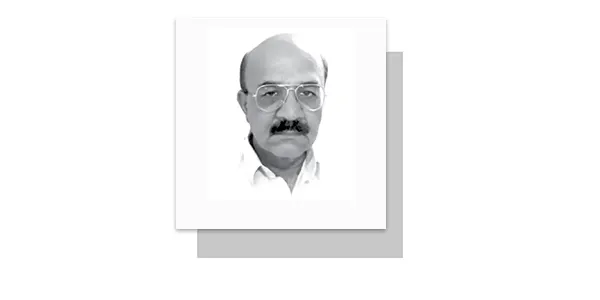ON 6 March 2024, the Pakistan Supreme Court stated that former Prime Minister Zulfikar Ali Bhutto, hanged in 1979 following one of the country’s most controversial legal cases, did not receive a fair trial—a verdict widely seen by the ex-premier’s family and political associates as a correction of history. Chief Justice Qazi Faez Isa said that the Constitution and the law do not provide a mechanism for annulling the Bhutto case judgment. The trial in the Lahore High Court (LHC) and the appeal proceedings in the Supreme Court were not in accordance with fundamental rights. On 4 April 1979, former Prime Minister of Pakistan, Zulfikar Ali Bhutto, was executed in Rawalpindi, Pakistan. He was sentenced to death after being accused of authorizing the murder of a political rival. His execution was controversial, sparking protests and condemnation from around the world. Bhutto remains a polarizing figure in Pakistan, celebrated by some as a champion of democracy and human rights, while criticized by others for his authoritarian style of governance.
Zulfiqar Ali Bhutto belonged to a Sindhi family. He was born to Sir Shahnawaz Bhutto and Khursheed Begum near Larkana on 5 January 1928. His father was the Dewan of the princely state of Junagadh and enjoyed an influential relationship with the officials of the British Raj. As a young boy, Bhutto moved to Bombay to study at the Cathedral and John Cannon School. Zulfiqar Ali Bhutto married twice in his lifetime. His first marriage took place in 1943 when he married his cousin and first wife, Shireen Amir Begum. In 1951, he married Begum Nusrat Ispahani on 8 September 1951. Zulfiqar Ali Bhutto, a Pakistani politician, served as the 9th Prime Minister of Pakistan from 1973 to 1977 and as the 4th President of Pakistan from 1971 to 1973. Educated at Berkeley and Oxford, Bhutto trained as a barrister at Lincoln Inn. He entered politics under President Iskander Mirza and served various ministries during President Ayub Khan’s rule. Bhutto founded the Pakistan People’s Party (PPP) in 1967 and contested elections in 1970. The PPP won a majority in West Pakistan, but disagreements over a new constitution led to uprisings and the secession of Bangladesh. Bhutto assumed the presidency in December 1971 under emergency rule.
Zulfiqar Ali Bhutto sought peace, negotiated the Shimla Agreement with Indira Gandhi, Premier of India, and brought back 90,000 prisoners of war to Pakistan and secured 5,000 sq miles held by India without compromising on the Kashmir stance or recognizing Bangladesh, which were the key Indian demands. He strengthened ties with China and Saudi Arabia, recognized Bangladesh, and hosted the second Organization of the Islamic Conference in Lahore in 1974. Domestically, Bhutto’s reign saw parliament unanimously approve a new constitution in 1973, upon which he appointed Fazal Ellahi Choudhry as President and switched to the newly empowered office of Prime Minister. Zulfiqar Ali Bhutto, widely recognized as the architect of Pakistan’s nuclear deterrence program, implemented significant reforms during his tenure as Prime Minister. His administration pursued nationalization efforts in the industrial sector alongside initiatives to enhance workers’ rights. Additionally, Bhutto introduced crucial land reforms, including the reduction of land ceilings and the establishment of tenancy security for farmers. He elevated Pakistan’s stature within the Non-Aligned Movement. Bhutto’s political dominance faced challenges, leading to accusations of electoral manipulation and triggering a violent opposition movement, culminating in a military takeover.
The last and crucial phase of his political career started in July 1977, after his government was overthrown, and ended in April 1979 when he was convicted of murder in a highly controversial trial and hanged by Zia-ul-Haq. Zulfiqar Ali Bhutto faced those tough times with courage and conviction. He never budged under pressure from an oppressive military ruler. For his supporters, Zulfiqar Ali Bhutto symbolizes the best elements in politics, the struggle against poverty and inequality as well as sacrifices for democracy and civilian supremacy. History will never forget the personality of Zulfiqar Ali Bhutto, and he is entitled to SHAHEED for the cause of poor people, Democracy, and sovereignty of the Country. Shaheed Bhutto remains a contentious figure in Pakistan’s history, his party remains among Pakistan’s, his daughter Benazir Bhutto was twice elected Prime Minister, and his son-in-law and Benazir’s husband, Asif Ali Zardari, served as President, and again elected and took Oath on March 10, 2024, for the next five years. The Nation is still remembering Shaheed Bhutto for his vocal voice for the supremacy of the country and advocacy for the Muslim cause.
—The writer is contributing columnist, based in Sindh.
Email: contact.abdulrazak@gmail.com










